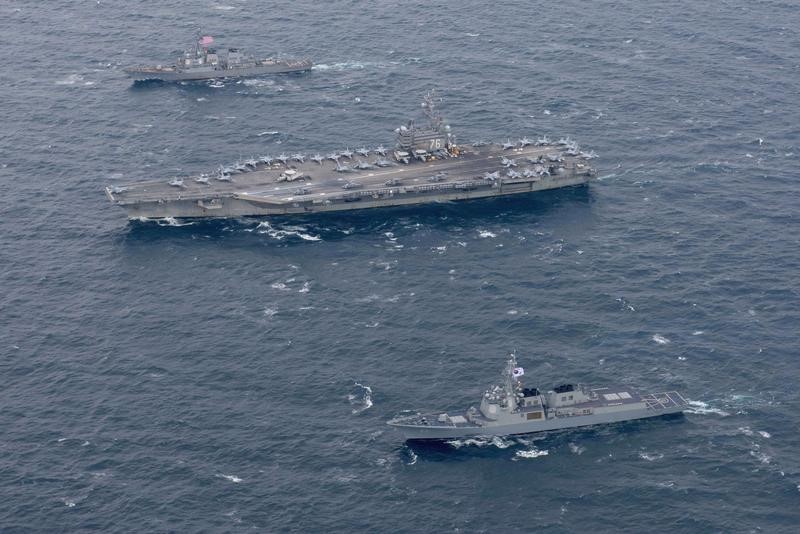
By Michelle Nichols
UNITED NATIONS (Reuters) – Russia failed on Friday to get the U.N. General Assembly to consider calling on Washington and Moscow to preserve and strengthen an arms control treaty that helped end the Cold War and warned that if the United States quits the pact it could raise the issue in the U.N. Security Council.
President Donald Trump said on Oct. 20 that Washington planned to quit the Intermediate-Range Nuclear Forces (INF) treaty which Mikhail Gorbachev, the last Soviet leader, and Ronald Reagan had signed in 1987. It eliminated all short- and intermediate-range land-based nuclear and conventional missiles held by both states in Europe.
Washington has cited Russia’s alleged violation of the treaty as its reason for leaving it, a charge Moscow denies. Russia, in turn, accuses Washington of breaking the pact.
Russia had proposed a draft resolution in the 193-member General Assembly’s disarmament committee but missed the Oct. 18 submission deadline. On Friday, it called for a vote on whether the committee should be allowed to consider the draft, but lost with only 31 votes in favor, 55 against and 54 abstentions.
“In a year, if the U.S. withdraws from the treaty and begins an uncontrolled build-up of weapons, nuclear-capable weapons, we will be confronting a completely different reality,” Andrei Belousov, deputy director of Russia’s Department for Nonproliferation and Arms Control, told the committee.
He questioned whether the United States was preparing for a war, asking: “Why is it then … do they want to leave the treaty? Why do they want to build up their nuclear capability?”
Belousov said if the United States follows through on its threat to withdraw, then Russia could raise the issue in the 15-member Security Council. However, such a move would not lead to any action as both countries have veto powers in the council.
U.S. Disarmament Ambassador Robert Wood told the committee Washington had spent some five years trying to engage Moscow on the issue of compliance and that Russia had “denied having produced or tested a ground-launch cruise missile.”
“It’s only recently that they admitted to having produced a ground-launch cruise missile but then maintained that it did not violate the range limits of the treaty,” he said.
“The U.S. has been extremely patient with Russia and our hope is that Russia will do the right thing and destroy that ground-launch cruise missile,” Wood said.
European members of NATO urged the United States on Thursday to try to bring Russia back into compliance with the treaty rather than quit it, diplomats said, seeking to avoid a split in the alliance that Moscow could exploit.
(Reporting by Michelle Nichols; Editing by James Dalgleish)




